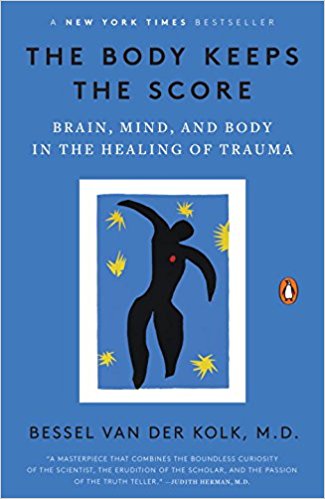Bessel van der Kolk: Trauma, the Brain & the Body
Bessel van der Kolk in Australia, 2019
Sydney, Melbourne, Brisbane:
March — April 2019
In my practice I begin the process by helping my patients to first notice and then describe the feelings in their bodies—not emotions such as anger or anxiety or fear but the physical sensations beneath the emotions: pressure, heat, muscular tension, tingling, caving in, feeling hollow, and so on. I also work on identifying the sensations associated with relaxation or pleasure. I help them become aware of their breath, their gestures and movements.
The mind needs to be reeducated to feel physical sensations, and the body needs to be helped to tolerate and enjoy the comforts of touch. Individuals who lack emotional awareness are able, with practice, to connect their physical sensations to psychological events. Then they can slowly reconnect with themselves.
Bessel van der Kolk
Bessel van der Kolk, MD, is a clinical psychiatrist whose work integrates mind, brain, body, and social connections to understand and treat trauma. His research ranges from the impact of trauma on development and brain imaging, to the use of yoga, neurofeedback, EMDR, and theater for the treatment of post-traumatic stress disorder.
He is a professor of psychiatry at Boston University School of Medicine, medical director of the Trauma Center in Boston, and co-director of the Complex Trauma Treatment Network, NCTSN.
He is the author of more than 150 peer reviewed scientific articles and several books including the New York Times best-seller The Body Keeps the Score: Mind, Brain, and Body in the Healing of Trauma.
The Body Keeps the Score:
Mind, Brain, and Body in the Healing of Trauma
by Bessel van der Kolk

The Body Keeps the Score is clear, fascinating, hard to put down, and filled with powerful case histories. Van der Kolk, the eminent impresario of trauma treatment, who has spent a career bringing together diverse trauma scientists and clinicians and their ideas, while making his own pivotal contributions, describes what is arguably the most important series of breakthroughs in mental health in the last thirty years.
We’ve known that psychological trauma fragments the mind. Here we see not only how psychological trauma also breaks connections within the brain, but also between mind and body, and learn about the exciting new approaches that allow people with the severest forms of trauma to put all the parts back together again.












